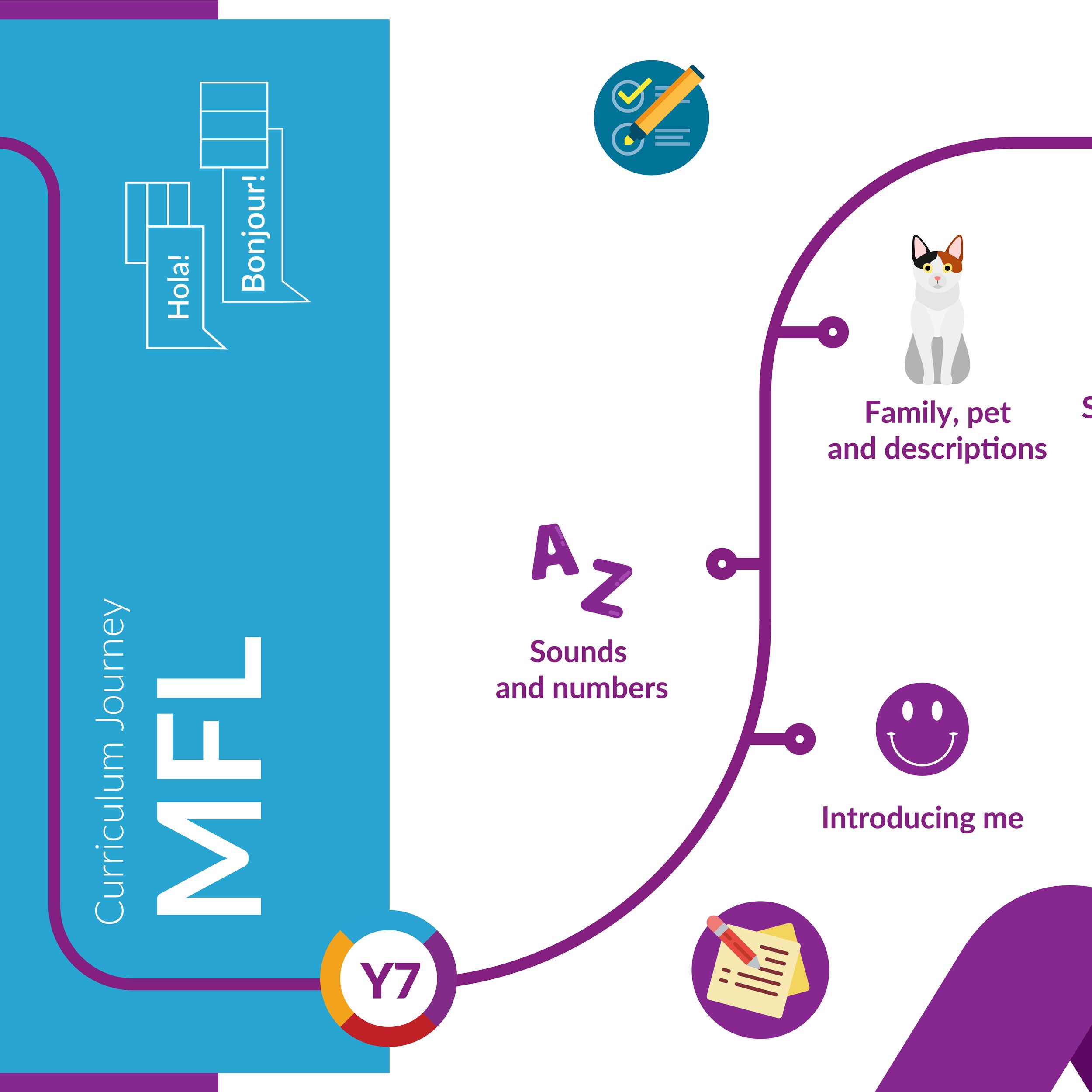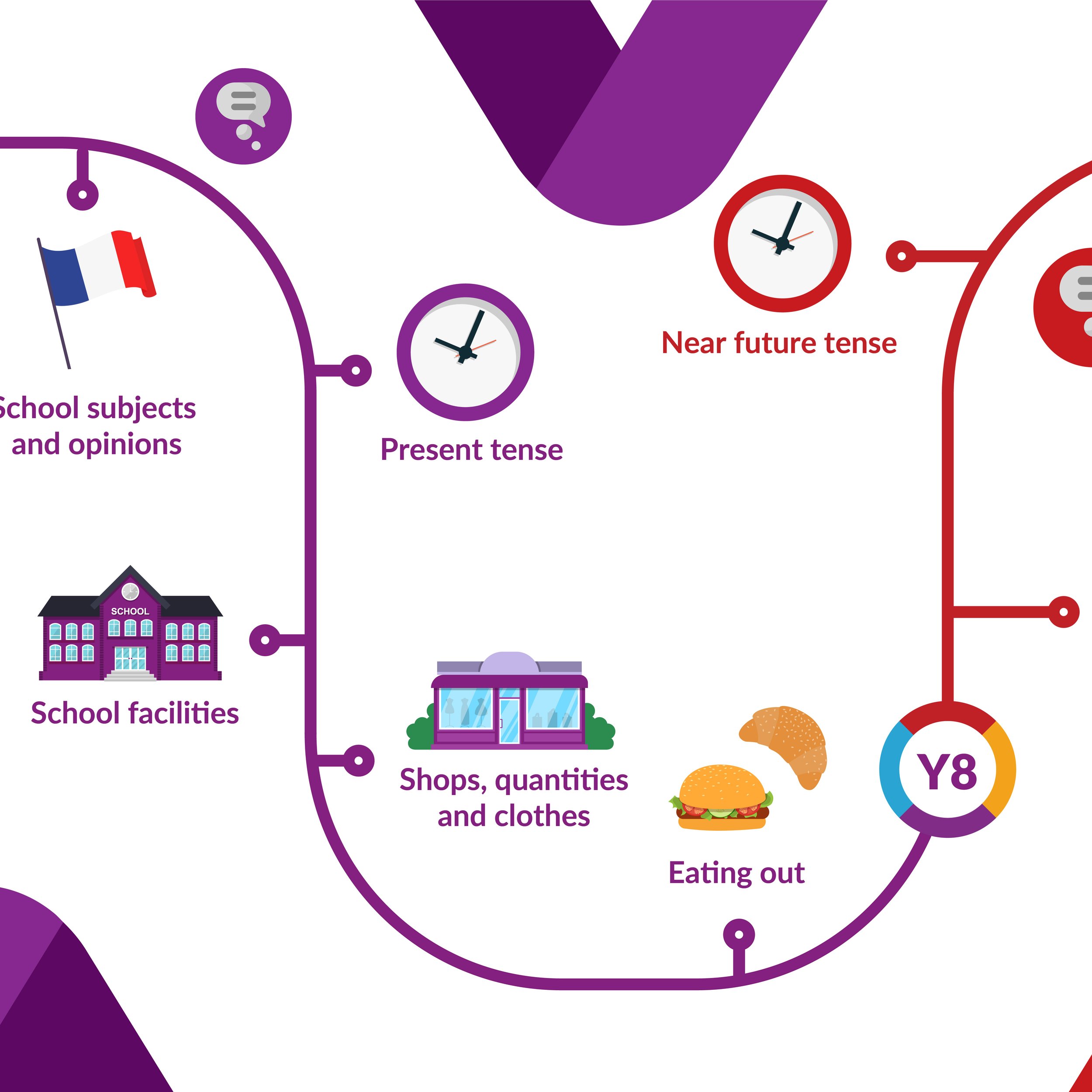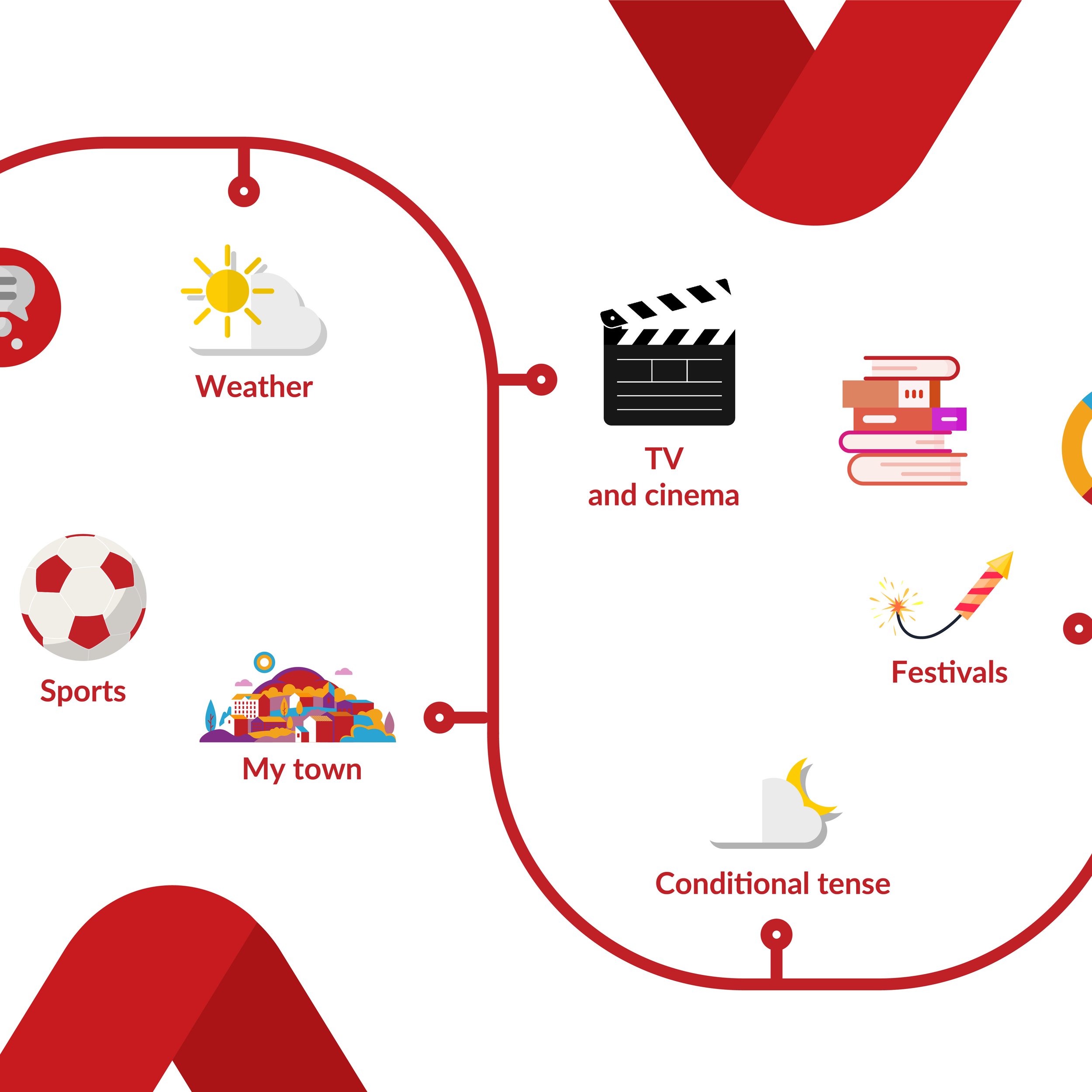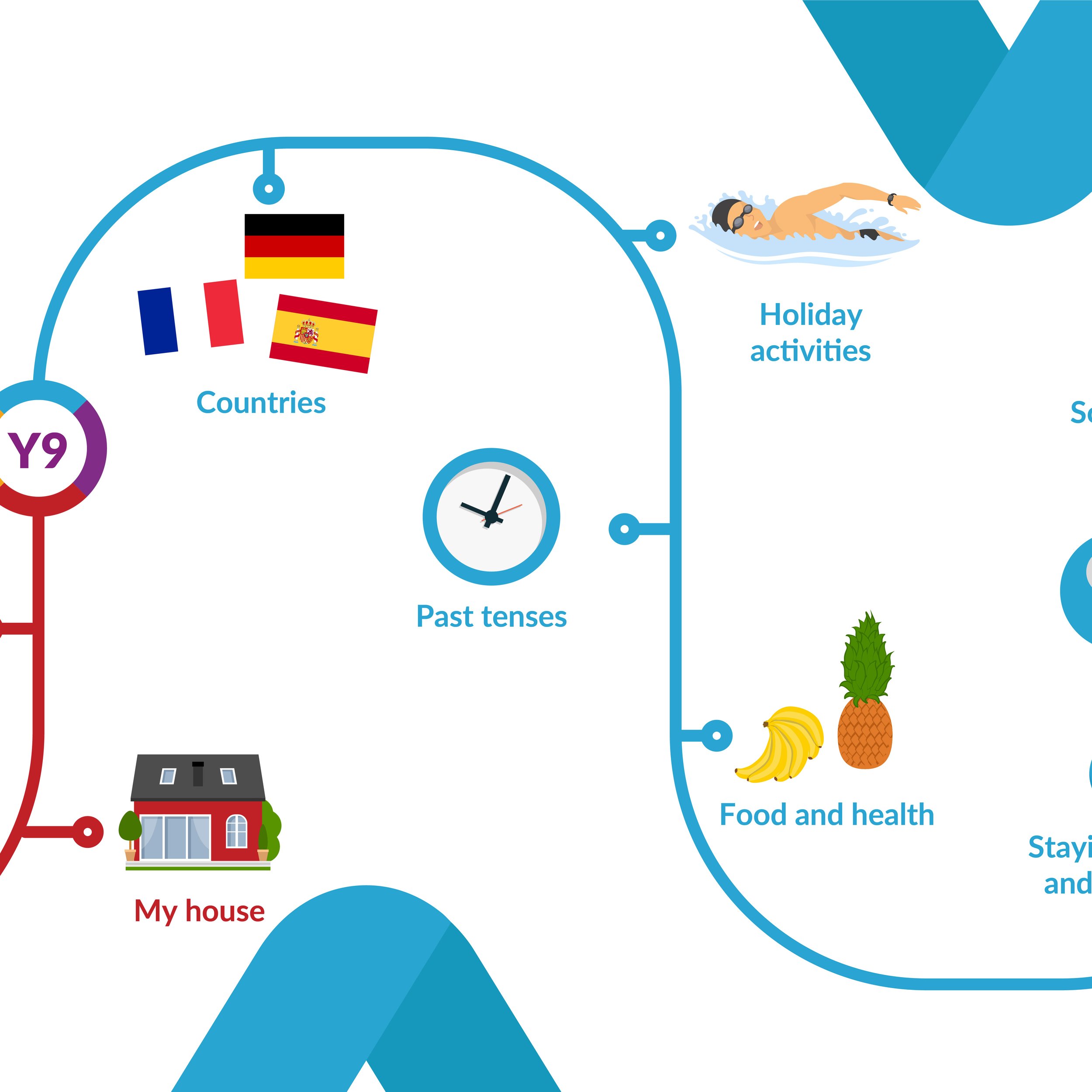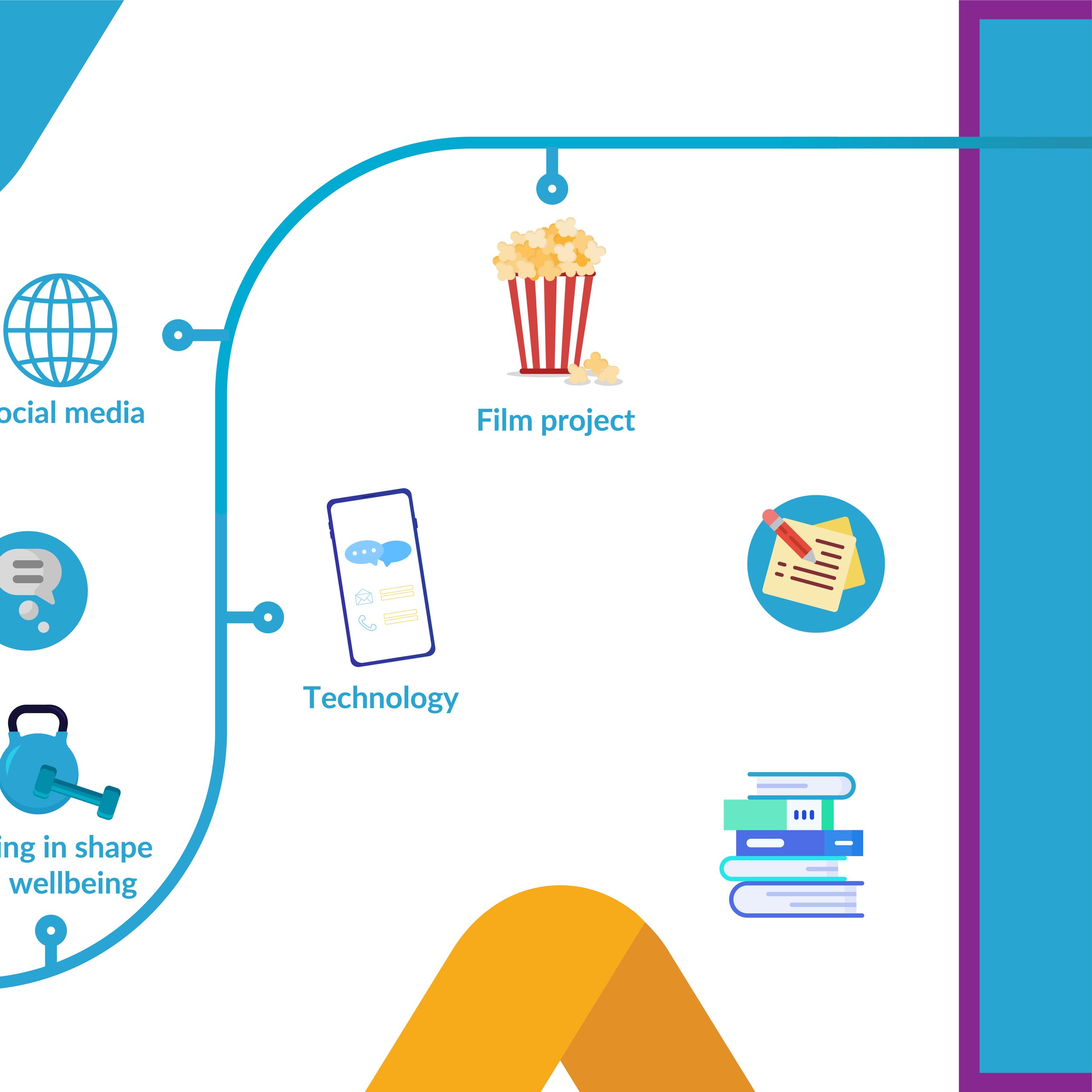
French
Year 9
Half Term 1
Holidays
-
Talking about where you normally spend your holidays and what you do.
Talking about different modes of transport and revising opinions and reasons.
Describing a past holiday and saying what the weather was like.
-
The ideas pupils will understand and the words they will be able to use
Holiday destinations and holiday activities.
Vocabulary for transport and accommodation.
Regular and irregular present tense verbs.
Introduction of the past tense known as the perfect tense in French, regular verbs and common irregulars.
Adjectives and adjectival agreement.
Weather expressions and key verbs to describe the weather in past and present tenses.
-
Questions and answers in French.
Languagenut assignments set every week for homework.
Testing the weekly words.
-
Half Term 2
Holidays
-
Talking in more detail about holidays in the past and present tense.
Asking and answering questions about past and present holidays.
Describing your ideal holiday.
-
The ideas pupils will understand and the words they will be able to use
Holiday activities and key verbs
Regular and irregular present tense verbs.
Perfect tense regular and irregular verbs.
The conditional tense.
The simple future tense.
Using past, present and future time frames together in a piece of writing.
Question words.
Developing listening, reading and translation skills around the topic of holidays.
-
Questions and answers in French.
Languagenut assignments set every week for homework.
Testing the weekly words.
-
Half Term 3
Healthy Living
-
Describing your diet by recapping food and drink from Y7.
Describing your lifestyle choices.
Talking about what you can and must eat to be healthy and understanding advice on being healthy.
Comparing your past habit and present habits.
-
The ideas pupils will understand and the words they will be able to use
Vocabulary for food and drink.
Adjectives to describe food, drink and healthy diets.
Modal present tense verbs in French: can, to want, to have to.
The conditional tense.
The imperfect tense to say what used to happen in the past.
-
Questions and answers in French.
Languagenut assignments set every week for homework.
Testing the weekly words.
-
Half Term 4
Healthy Living
-
Talking about illnesses and saying what is wrong.
Understanding advice from a chemist in Spain.
Talking about the dangers of smoking and other lifestyle choices.
-
Parts of the body vocabulary and illnesses.
Common “avoir” expressions with illnesses.
Masculine, feminine and plural nouns and associated grammar rules.
Modal verbs eg “devoir” and questions words.
Impersonal verbs eg il faut.
Present tense and conditional tense.
Recap of perfect tense.
-
Questions and answers in French.
Languagenut assignments set every week for homework.
Testing the weekly words.
-
Half Term 5
Media and New Technology
-
Describing your use of technology and different devices.
Talking about your past and present habits.
Expressing opinions around the use of technology and understanding the advantages and disadvantages.
Talking about your future use of new technology.
-
The ideas pupils will understand and the words they will be able to use
Vocabulary for technological devices.
Key verbs for using technology and different activities.
Using complex opinions to express advantages and disadvantages.
Past (perfect and imperfect), present, future and conditional tenses.
-
Questions and answers in French.
Languagenut assignments set every week for homework.
Testing the weekly words.
-
Half Term 6
Media and New Technology
-
Talking about what jobs you would like to do.
Talking in more detail about your future ambitions.
Talking about skills/ knowledge needed for specific jobs.
-
Vocabulary for tv programmes and cinema.
Using adjectives when making comparisons and using superlatives (the best, the worst).
Developing writing and translation skills.
Recognising and using three-time frames: past, present and future tenses in one piece of work.
-
Describing your tv and cinema viewing habits.
Giving more complex opinions about cinema and tv and making comparisons.
Understanding information about a programme or film.
-

